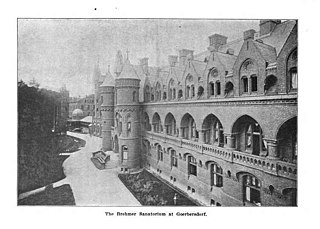
A sanatorium, also sanitarium or sanitorium, are antiquated names for specialised hospitals, for the treatment of specific diseases, related ailments and convalescence. Sanatoriums are often in a healthy climate, usually in the countryside. The idea of healing was an important reason for the historical wave of establishments of sanatoriums, especially at the end of the 19th- and early 20th centuries. One sought, for instance, the healing of consumptives, especially tuberculosis or alcoholism, but also of more obscure addictions and longings of hysteria, masturbation, fatigue and emotional exhaustion. Facility operators were often charitable associations such as the Order of St. John and the newly founded social welfare insurance companies.
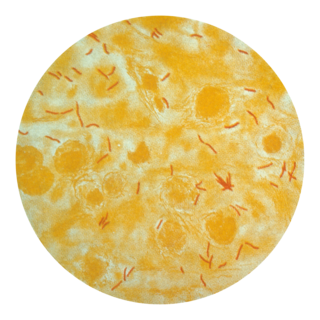
Tuberculosis is diagnosed by finding Mycobacterium tuberculosis bacteria in a clinical specimen taken from the patient. While other investigations may strongly suggest tuberculosis as the diagnosis, they cannot confirm it.

Tuberculosis management describes the techniques and procedures utilized for treating tuberculosis (TB).
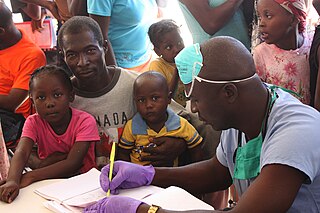
Partners In Health (PIH) is an international nonprofit public health organization founded in 1987 by Paul Farmer, Ophelia Dahl, Thomas J. White, Todd McCormack, and Jim Yong Kim.

Tibetan Children's Villages or TCV is an integrated community in exile for the care and education of orphans, destitutes and refugee children from Tibet. It is a registered, nonprofit charitable organization with its main facility based at Dharamsala in Himachal Pradesh, North India. TCV has a network spread across India with over 12,000 children under its care.
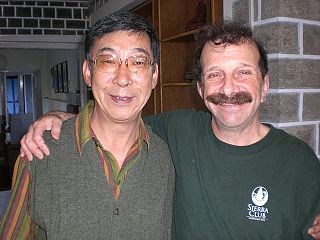
Robert Zorba Paster is a physician and radio show host.
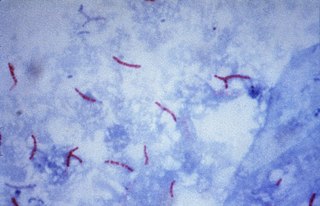
Multidrug-resistant tuberculosis (MDR-TB) is a form of tuberculosis (TB) infection caused by bacteria that are resistant to treatment with at least two of the most powerful first-line anti-TB medications (drugs): isoniazid and rifampin. Some forms of TB are also resistant to second-line medications, and are called extensively drug-resistant TB (XDR-TB).
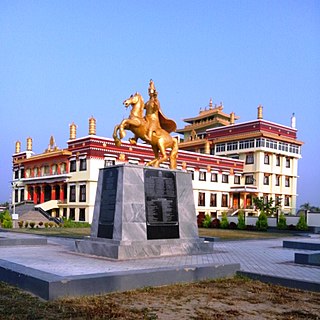
The Tibetan diaspora are the diaspora of Tibetan people living outside Tibet.

Sir Alimuddin Zumla,, FRCP, FRCPath, FRSB is a British-Zambian professor of infectious diseases and international health at University College London Medical School. He specialises in infectious and tropical diseases, clinical immunology, and internal medicine, with a special interest in HIV/AIDS, respiratory infections, and diseases of poverty. He is known for his leadership of infectious/tropical diseases research and capacity development activities. He was awarded a Knighthood in the 2017 Queens Birthday Honours list for services to public health and protection from infectious disease. In 2012, he was awarded Zambia's highest civilian honour, the Order of the Grand Commander of Distinguished services - First Division. In 2022, for the fifth consecutive year, Zumla was recognised by Clarivate Analytics, Web of Science as one of the world's top 1% most cited researchers. In 2021 Sir Zumla was elected as Fellow of The World Academy of Sciences.
A. V. Gurava Reddy is an Internationally recognized, Indian Orthopedic Surgeon and Joint replacement expert. He is the Managing Director and Chief Joint Replacement Surgeon at Sunshine Bone and Joint Institute – Sunshine Hospitals, a 300-bed NABH Accredited, Multispeciality hospital in Hyderabad India. A. V. Gurava Reddy is one of the leading surgeon(s) in India and performs about 4000 joint replacements per year. He has made sustained efforts to increase the awareness and acceptance of Joint replacement surgery in India. In 2021, Sunshine Hospital's majority stake was sold to Krishna Institute of Medical Sciences, commonly known as KIMS.

Lha Charitable Trust – Institute For Social Work and Education (Lha) is a grassroots, nonprofit organization, and one of the largest Tibetan social work organizations based in Dharamsala, India. It is the first organization that was established in exile to develop a primary focus on Tibetan social work. The Lha Charitable Trust was founded in 1997 and is registered as a charitable trust by the Himachal Pradesh government of India. Lha is managed by Tibetan refugees, is supported by volunteers and contributors from around the world, and serves refugees, the local Indian population and people from the surrounding Himalayan region. In a short period of time, the organization "has grown in leaps and bounds, from a small start-up with two computers to one of largest community based Tibetan NGOs in Dharamsala." Lha is a Tibetan word that means "deity" or "divine."
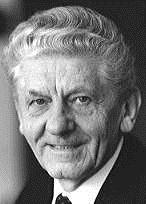
Karel Styblo was a Czech-Dutch physician. Internationally recognized for his work with tuberculosis (TB), he was a medical advisor to the Royal Netherlands Tuberculosis Association, and was named director of the International Union Against Tuberculosis and Lung Disease (IUATLD) in 1979. He is known as the "father of modern TB epidemiology" and the "father of modern TB control".

Tuberculosis in India is a major health problem, causing about 220,000 deaths every year. In 2020, the Indian government made statements to eliminate tuberculosis from the country by 2025 through its National TB Elimination Program. Interventions in this program include major investment in health care, providing supplemental nutrition credit through the Nikshay Poshan Yojana, organizing a national epidemiological survey for tuberculosis, and organizing a national campaign to tie together the Indian government and private health infrastructure for the goal of eliminating the disease.
Operation ASHA(OpASHA) is a non-profit organization (NGO) founded in 2006 to bring tuberculosis (TB) treatment at economically feasible rates to disadvantaged communities. The organization's primary work is to detect and cure TB, as well as to prevent and treat multidrug-resistant tuberculosis (MDR-TB) in India and Cambodia. Operation ASHA specializes in last-mile connectivity, bridging the gap between government medicine distribution centers and the communities of patients to deliver treatment at the doorsteps of the under-served. In addition to detecting and curing TB, OpASHA's community health workers also educate the community about TB and its symptoms thereby helping to reduce the stigma there is regarding the disease. In addition to TB, Operation ASHA's model and technology has been used in many other diseases such as diabetes, hemophilia and mental health.
Government Hospital of Thoracic Medicine, popularly known as the Tambaram TB Sanatorium, is a major state-owned hospital situated in Chennai, India. The hospital is funded and managed by the state government of Tamil Nadu. It was founded in 1928.

Almaz Sharman is the President of the Academy of Preventive Medicine of Kazakhstan and the National Center for Nutrition. Ethnic Kazakh and a citizen of the United States, Sharman has more than 30 years of experience in biomedical and clinical science and healthcare management.

Lobsang Dolma Khangkar also called Lobsang Dolma or Ama Lobsang Dolma was a 13th generation doctor of traditional Tibetan medicine. She travelled with the Dalai Lama in 1959 from Tibet to India. She was the First woman to become chief physician of the Men-Tsee-Khang. She and the others carried her daughters on their backs into what is now Dharamsala, India: Tsewang Dolkar Khangkar and Pasang Gyalmo Khangkar, succeeded her in the family line of doctors, the Khangkar.

Yeshi Dhonden was a Tibetan doctor of traditional Tibetan medicine, and served the 14th Dalai Lama from 1961 to 1980. In 2018, the Indian government honoured him with the Padma Shri, the fourth highest civilian award in India.
Zarir Udwadia is an Indian pulmonologist and researcher. His work on drug resistant tuberculosis has led to improvements in India's National Tuberculosis Control Programme. Udwadia was the only Indian invited by the WHO to be part of the TB ‘Guidelines Group’, which formulated the 4th edition of the TB Guidelines, published in 2010. He was also the only doctor to be named among India's best strategists.
Jaime Bayona García is a Peruvian physician who focuses on public health and he has become a specialist in studying the epidemiology of tuberculosis. He is also known for his case studies on HIV/AIDS in Peru and other developing countries. Dr. Bayona has also done work on how public health systems should improve, in terms of providing the best approach to help the sick that cannot afford health care.



















